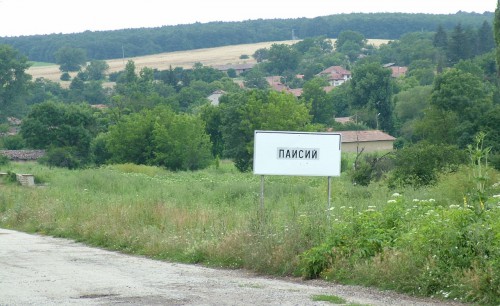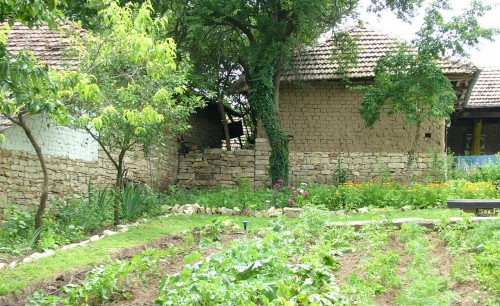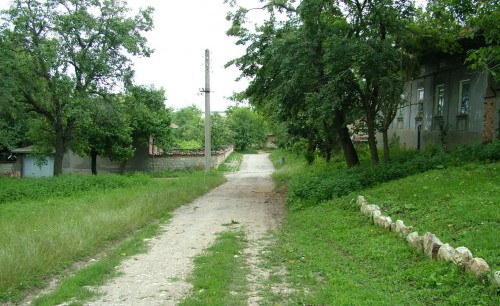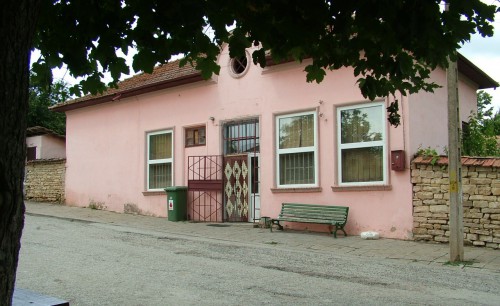27th April 2014 Sofia, Bulgaria
Integration
by Kris P Baykon
Kris P Baykon is an ex-serviceman from the UK, who tried the 9-5 life for a few years and didn’t really like it. As a consequence he and his wife now live in rural Bulgaria. Kris runs a blog about his Bulgarian life.
“The good news is that this village does feel like home and I wouldn’t swap it to return to anywhere in the UK.” – Kris P Baykon

My wife and I have been living in this little village for over 5 years, so I thought maybe it was time to take stock of the situation. Our village is so small and according to the 2007 figures there were 202 people living here. I think that figure will be slightly lower now as there seem to be more deaths than births. There is definitely something about this village which attracts us foreigners, as round about 10% of the village population, either permanent or holiday home owners, are foreign. Even though there is such a proportion of us foreigners here it doesn’t mean that we all live in a small enclave, or spend each day in and out of each other’s houses at the exclusion of the other villagers.
It has been said that the English are quite lazy when it comes to speaking, or even learning, a foreign language. To be perfectly honest that does often hold true to those still in the UK. Those who have relocated to a foreign country will often make attempts at learning the language. Bulgarian is possibly not the easiest of languages to tackle, and when we left the UK there were no classes available, maybe that has changed now. What we did learn from books and CDs had to be relearned when we got here, as no one could understand the way we pronounced words. I am not suggesting that we are anywhere near fluent; I very much doubt that we ever will be. What seems to make all the difference is that we make the attempt.
We have made the conscious effort to try and fit in with village life. The villagers grow their own fruit and vegetables, and so do we. Before we came out here there were numerous postings on the various forums about villagers giving you their surplus produce. Since we have been here it has only happened a couple of times, but the village knows that we work our garden in much the same way that they do. Our first summer here and our vegetable plot was the talk of the village. We were growing giant pumpkins, and Nickolai the waterman used to monitor their progress each month, when we harvested them the seeds were going here, there and everywhere.
I keep the grass cut down at the front of our house, and quite often while I am out doing so I get the nod of approval from the Kmet (mayor). When Baba (old woman) was alive I also used to cut the grass at the front of her house. Despite being totally unable to understand a word she would sit outside and natter away, it was quite disappointing when she died.
So if the question is whether we feel that we have integrated into the village, the answer has to be both yes and no. I can now go round to the Post Office or the magazin (shop) and get what I need, chat with neighbours that I meet, all without speaking any English. We are known in the village, and the Kmet and her predecessor seem to think we are OK, Nickolai, the waterman, is a very quiet man but happily chats to us. Amy, Saeed and their two children keep a watchful eye on our house, and only ever ask us for anything in the direst of emergencies.
They get our surplus produce and first refusal on anything we have grown out of or no longer need, we occasionally get eggs and fresh banitsa. If people are waiting for the bus to go into town we have stopped to give lifts. On the down side we have been ripped off, but that was maybe just us being a bit naive. As foreigners we do often feel that we get overlooked, but sometimes it is difficult to integrate into a village where nothing really happens or changes on a day to day basis.
The good news is that this village does feel like home and I wouldn’t swap it to return to anywhere in the UK, so the village is stuck with us. Also, no matter how hard I try I just can’t get to like the music though. Thankfully the internet is now much better and UK radio can be streamed through the computer, so at the moment I am listening to Steve Wright in the Afternoon on Radio 2.



Bravo Kris, we also live in a small village but only about 10km from Yambol.
This is our 7th year and as the only Brits here we had to integrate and will always be learning the language (‘though my wife learned Russian at school – which helped with the alphabet), we read ( me slowly) and write Bulgarian but it’s the accent & pronounciation (and age) that means we will always be ex-pats – but the locals like our attempts.
I enjoy your blog via facebook and I think most of us have a book or two of dos &don’ts inside. .
much the same for me except my bulgarian is terrible (ex serves) my partner (bulgarian)is quite amused at my attempts at bulgarian. My grass is cut by a goat women for her winter feed.shes very happy with the grass and so am i
Dear David,
Thank you very much for the comment. We are glad that you enjoyed Kris’s story.
Please feel free to participate in the project too. We are sure you have great stories to share too.
Kind regards,
British Embassy Sofia
A very acurate description of life for expats who do make the effort to integrate into small village life here in BG. We also speak ‘very poor’ Bulgarian and the villagers enjoy our efforts, we shop in the village and support all village events and festivals. There are some expats who do not make the effort and that is their loss. The Ambassador and is deputy lead by example by speaking (a fair amount) of Bulgarian.